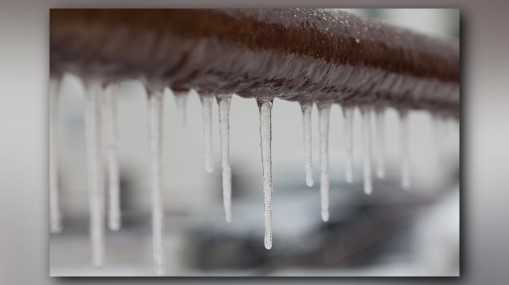Preventing Pipes from Freezing: Best Methods
Click HereThis article listed below involving Helpful Tips to Prevent Frozen Pipes this Winter is unquestionably insightful. You should check it out.

Winter can ruin your plumbing, specifically by freezing pipes. Here's just how to avoid it from taking place and what to do if it does.
Introduction
As temperatures decline, the danger of frozen pipes boosts, potentially bring about expensive fixings and water damage. Comprehending how to stop frozen pipelines is important for homeowners in chilly environments.
Avoidance Tips
Protecting susceptible pipelines
Cover pipes in insulation sleeves or use heat tape to safeguard them from freezing temperature levels. Concentrate on pipelines in unheated or outside areas of the home.
Home heating techniques
Maintain interior spaces appropriately warmed, particularly areas with pipes. Open cupboard doors to allow cozy air to flow around pipes under sinks.
How to identify frozen pipelines
Seek reduced water circulation from taps, unusual odors or noises from pipes, and visible frost on exposed pipelines.
Long-Term Solutions
Architectural modifications
Consider rerouting pipelines away from outside walls or unheated locations. Add extra insulation to attics, cellars, and crawl spaces.
Upgrading insulation
Buy premium insulation for pipelines, attic rooms, and wall surfaces. Correct insulation assists keep consistent temperature levels and lowers the danger of icy pipes.
Shielding Outdoor Plumbing
Yard tubes and exterior taps
Disconnect and drain pipes garden tubes before winter season. Install frost-proof faucets or cover exterior taps with protected caps.
Comprehending Frozen Pipelines
What creates pipelines to ice up?
Pipes ice up when subjected to temperature levels below 32 ° F (0 ° C) for expanded durations. As water inside the pipes ices up, it broadens, taxing the pipeline wall surfaces and potentially creating them to break.
Threats and damages
Frozen pipelines can bring about water disturbances, home damages, and pricey fixings. Burst pipes can flood homes and cause considerable architectural damages.
Indicators of Frozen Pipes
Determining icy pipes early can avoid them from bursting.
What to Do If Your Pipes Freeze
Immediate actions to take
If you think icy pipelines, keep taps open to eliminate stress as the ice melts. Use a hairdryer or towels soaked in hot water to thaw pipelines slowly.
Verdict
Preventing icy pipes needs positive measures and fast feedbacks. By recognizing the reasons, indications, and preventive measures, property owners can shield their pipes during winter.
Helpful Tips to Prevent Frozen Pipes this Winter
UNDERSTANDING THE BASICS: WHY PIPES FREEZE AND WHY IT’S A PROBLEM
Water freezing inside pipes is common during the winter months, but understanding why pipes freeze, and the potential problems it can cause is crucial in preventing such incidents. This section will delve into the basics of why pipes freeze and the associated problems that may arise.
THE SCIENCE BEHIND FROZEN PIPES
When water reaches freezing temperatures, it undergoes a physical transformation and solidifies into ice. This expansion of water as it freezes is the primary reason pipes can burst. As the water inside the pipe freezes, it expands, creating immense pressure on the walls. If the pressure becomes too great, the pipe can crack or rupture, leading to leaks and water damage.
FACTORS THAT CONTRIBUTE TO PIPE FREEZING
Low Temperatures: Extremely cold weather, especially below freezing, increases the risk of pipes freezing. Uninsulated or Poorly Insulated Pipes: Pipes located in unheated areas, such as basements, crawl spaces, or attics, are more prone to freezing. Insufficient insulation or lack of insulation altogether exacerbates the problem. Exterior Wall Exposure: Pipes running along exterior walls are susceptible to freezing as they encounter colder temperatures outside. Lack of Heating or Temperature Regulation: Inadequate heating or inconsistent temperature control in your home can contribute to frozen pipes. PROBLEMS CAUSED BY FROZEN PIPES
- Pipe Bursting: As mentioned earlier, the expansion of water as it freezes can cause pipes to burst, resulting in significant water damage.
- Water Damage: When pipes burst, it can lead to flooding and water damage to your property, including walls, ceilings, flooring, and personal belongings.
- Structural Damage: Prolonged exposure to water from burst pipes can compromise the structural integrity of your home, leading to costly repairs.
- Mold and Mildew Growth: Excess moisture from water damage can create a favorable environment for mold and mildew growth, posing health risks to occupants.
- Disrupted Water Supply: Frozen pipes can also result in a complete or partial loss of water supply until the issue is resolved.
WHY CERTAIN PIPES ARE MORE PRONE TO FREEZING
- Location: Pipes located in unheated or poorly insulated areas, such as basements, crawl spaces, attics, or exterior walls, are at higher risk of freezing.
- Exterior Pipes: Outdoor pipes, such as those used for irrigation or exposed plumbing, are particularly vulnerable to freezing as they are directly exposed to the elements.
- Supply Lines: Pipes that carry water from the main water supply into your home, including the main water line, are critical to protect as freezing in these lines can affect your entire plumbing system.
- Underground Pipes: Pipes buried underground, such as those connected to sprinkler systems or outdoor faucets, can be susceptible to freezing if not properly insulated.
https://busybusy.com/blog/helpful-tips-to-prevent-frozen-pipes-this-winter/

Do you really like reading about Preventing and dealing with frozen pipes? Write a remark down below. We will be happy to hear your feelings about this write-up. We hope that you come back again in the near future. Those who enjoyed reading our blog posting plz don't forget to share it. Thank-you for taking the time to read it.
Article